Synthetic Testing
Test Platform:
CPU – Intel Core i9-11900K
Mobo – ASUS Maximus XIII Hero
RAM – 32GB (4x8GB) HyperX Fury RGB 3200MHz C16
GPU – Nvidia RTX 2080 Founders Edition
SSD – Kingston KC1000 1TB
PSU – Thermaltake Toughpower Grand RGB Gold 750W
Chassis – Open BenchTable
Cooling – Custom Liquid Loop (EKWB Velocity CPU Block, EKWB PE240 Rad, 1x DDC Pump)
All testing is performed at stock settings except for enabling XMP (Profile 1: 3200MHz 16-18-18-38 1.35V) and Asus’s Multicore Enhancement disabled in the BIOS.
Super PI Modded 1.5
“In August 1995, the calculation of pi up to 4,294,960,000 decimal digits was succeeded by using a supercomputer at the University of Tokyo. The program was written by D.Takahashi in collaboration with Dr.Y.Kanada at the computer center. This record should be the current world record. (Details are shown in the windows help.) This record-breaking program was ported to personal computer environments such as Windows NT and Windows 95. In order to calculate 33.55 million digits, it takes within 3 days with a Pentium 90 MHz, 40 MB main memory, and 340 MB available storage.”
One of Intel’s biggest claims to fame this generation is the per-core IPC uplift, meaning per clock cycle, you get more performance. The easiest way to see this is a single-threaded test and indeed here we see a large uplift in SuperPi.
CINEBENCH R15
“CINEBENCH is a real-world cross-platform test suite that evaluates your computer’s performance capabilities. CINEBENCH is based on MAXON’s award-winning animation software CINEMA 4D, which is used extensively by studios and production houses worldwide for 3D content creation. MAXON software has been used in blockbuster movies such as Iron Man 3, Oblivion, Life of Pi or Prometheus, and much more.
CINEBENCH is the perfect tool to compare CPU and graphics performance across various systems and platforms (Windows and OS X). And best of all: It’s completely free.”
In single-threaded test mode, the 11900K easily climbs ahead of every other blue processor, but can’t quite edge out the latest flagship chips from AMD.
In multi-threaded, the 8-core 11900K crawls just ahead of the previous 10-core 10900K. Raw core count is still king here so AMD’s 12 and 16-core chips still hold a commanding lead overall.
CINEBENCH R20
Cinebench is a real-world cross-platform test suite that evaluates your computer’s hardware capabilities. Improvements to Cinebench Release 20 reflect the overall advancements to CPU and rendering technology in recent years, providing a more accurate measurement of Cinema 4D’s ability to take advantage of multiple CPU cores and modern processor features available to the average user. Best of all: It’s free.
In the newer Cinebench R20, the 11900K actually pulls a win in single-threaded mode.
In multi-core mode, we see the same trend as Cinebench R15.
Passmark Performance Test – CPU Mark
“Fast, easy to use, PC speed testing, and benchmarking. PassMark Performance Test ™ allows you to objectively benchmark a PC using a variety of different speed tests and compare the results to other computers.”
Passmark gives the 11900K a strong lead over the higher core count 10900K and it even shows gains on the Ryzen 3900X with 50% more cores.
SiSoft Sandra – Cryptographic Bandwidth
“SiSoftware Sandra provides a robust package of diagnostic tools for testing your system and teasing out its problems–or potential headaches.”
SiSoft Sandra gives the 11900K a bit lower score here than the 10900K.
Y-Cruncher
Written by Alexander J. Lee “From a high-school project that went a little too far…” y-cruncher, (y for gamma) is a number-crunching program that can compute various mathematical constants.
It was originally a small program specialized for computing the Euler-Mascheroni Constant. (Which uses gamma as its symbol, hence the name). It has since gained the ability to compute other constants.
It is the first of its kind that is multi-threaded and scalable to multi-core systems. Ever since its launch in 2009, it has become a common benchmarking and stress-testing application for overclockers and hardware enthusiasts.
We tested using the built-in benchmarks to compute Pi to 1 Billion Digits in both single and multi-threaded mode and recorded the Total Computation time at the end of the run. Y-Cruncher is also able to take advantage of AVX512 instructions in compatible CPUs. Due to the thermal load of running Intense AVX workloads, Intel has implemented an AVX offset clock that may scale the CPU’s clock speed back, even below stock speeds when running intense AVX loads. For this reason, we note the CPU’s clock speed in both single and multi-threaded test modes.
The 11900K almost ties the 10900K in multi-threaded mode, but 11th gen includes AVX-512 support and this manifests itself as THE fastest compute times of any CPUs we’ve ever tested, including HEDT chips that have had AVX512 support for several generations. AVX512 isn’t commonly used but can lend itself to certain computations more common in workstation tasks.
Black Hole 4.2
Let the beast run and benchmark your system in three different tests (Multithreaded, Single-threaded & 4-Threaded) that will test your CPU to the very limit, and score you among hundreds of other systems that have tested.
Multithreaded will test your CPU’s efficiency of running more than one thread without major system lag. The higher you score on this one, the more threads your CPU can handle with a comfortable speed. High multithreaded scores generally mean you can render things faster.
4-Threaded tests your CPU’s performance in games since most games currently run on 4 threads.
Single-threaded evaluates how fast the CPU can handle a single, dedicated thread for processing.
The 11900K just crushes this benchmark with it just edging out the 12-core AMD Ryzen 5900X. Even the 11600K flys way ahead of the 10900K.


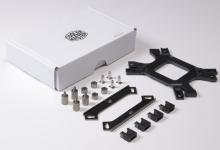
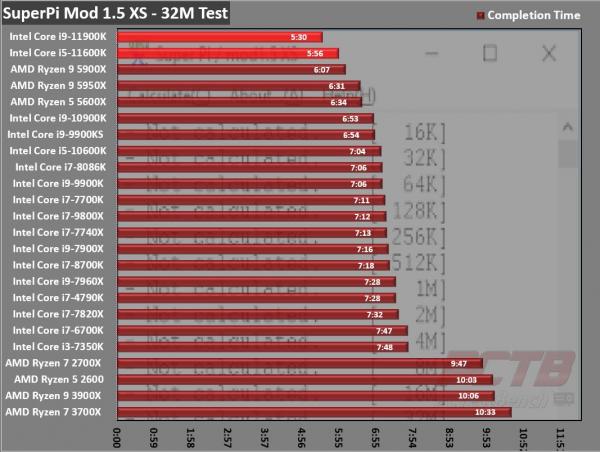
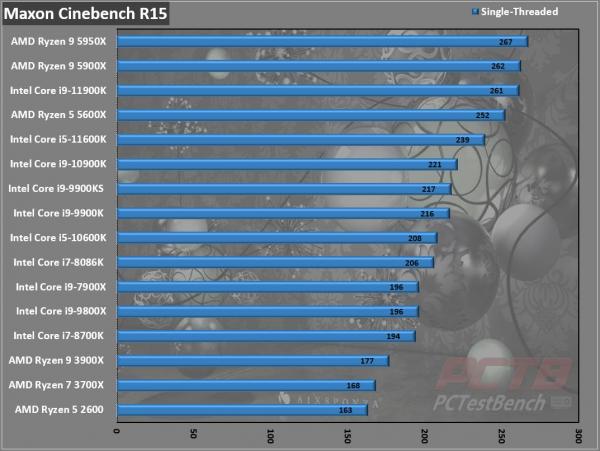
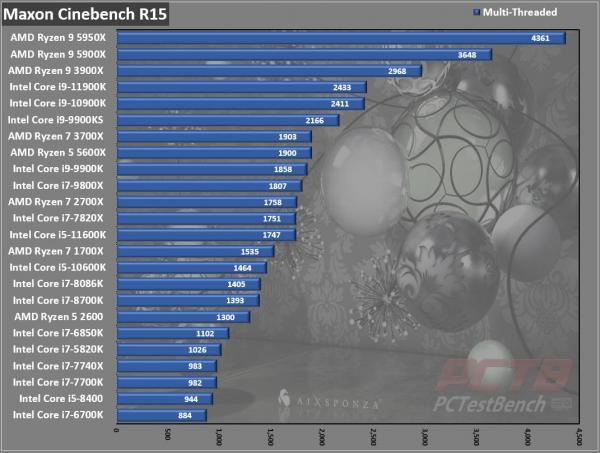
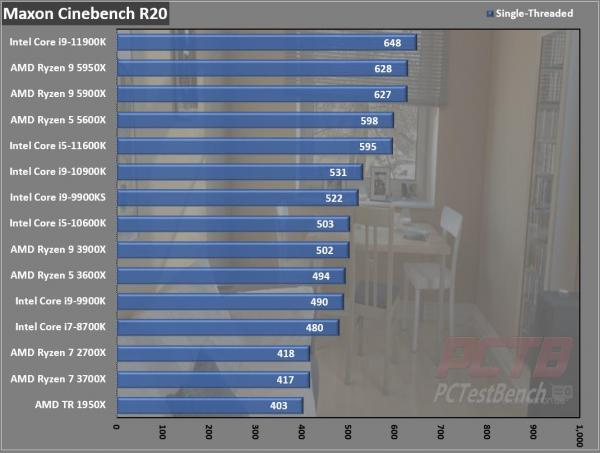
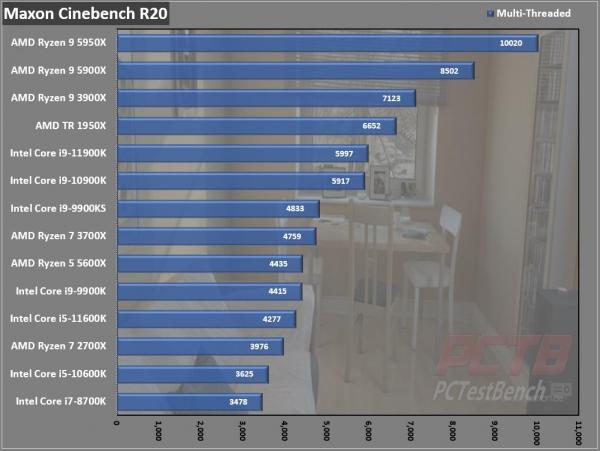
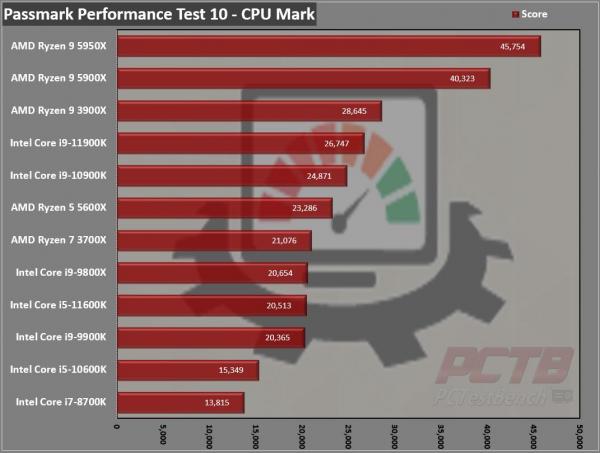
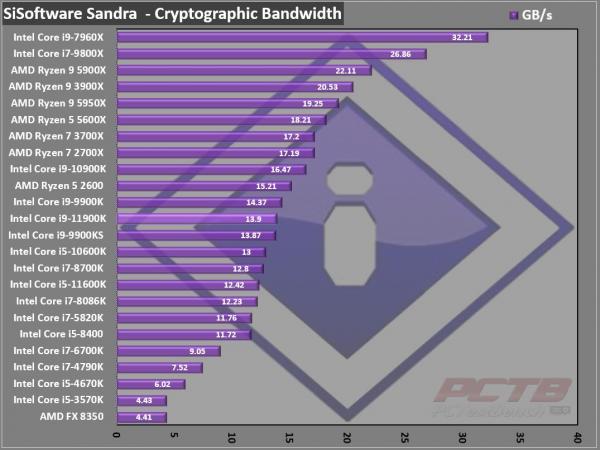
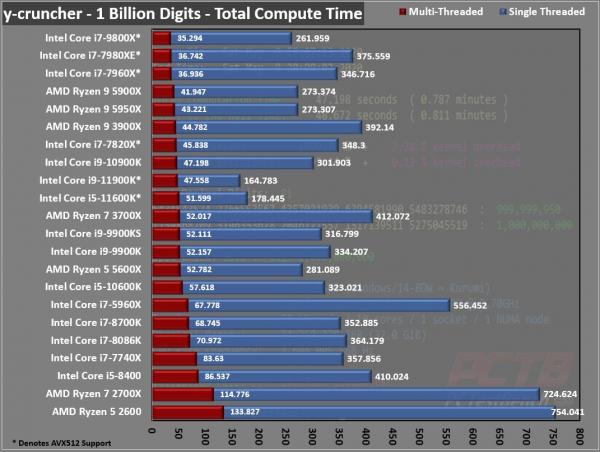
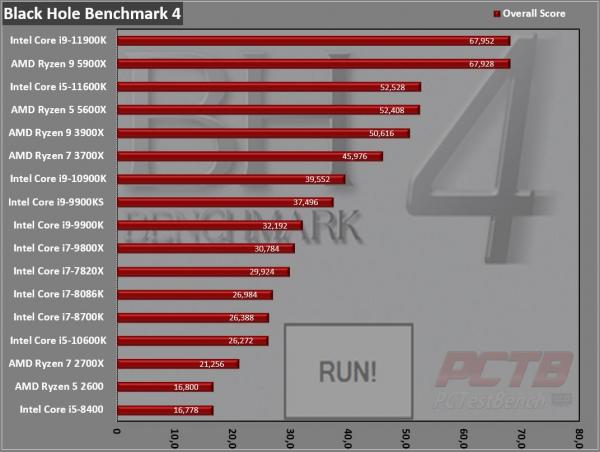

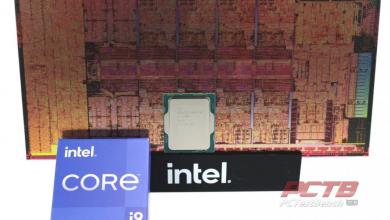
Check Out Our Amazon Store with Modders Inc
Please Support PCTestBench as Every Purchase Helps